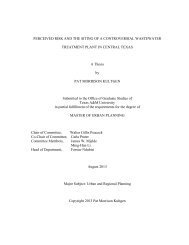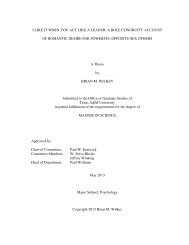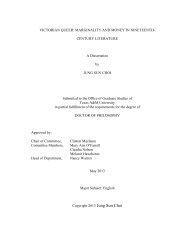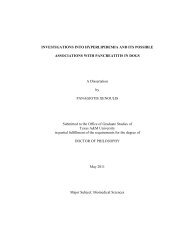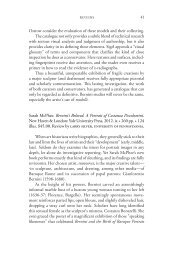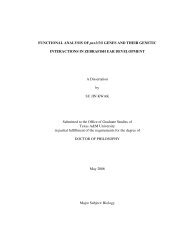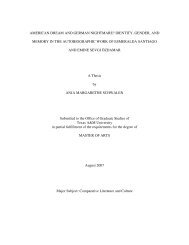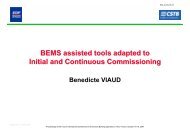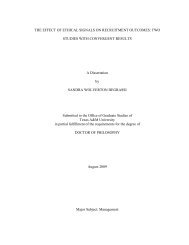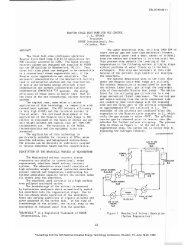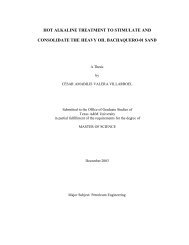A Dissertation by GRACE HUI-CHIN LIN Submitted to the Office of ...
A Dissertation by GRACE HUI-CHIN LIN Submitted to the Office of ...
A Dissertation by GRACE HUI-CHIN LIN Submitted to the Office of ...
You also want an ePaper? Increase the reach of your titles
YUMPU automatically turns print PDFs into web optimized ePapers that Google loves.
deconstructed Chinese characters and words and transformed <strong>the</strong>m in<strong>to</strong> new English<br />
words through <strong>the</strong> skill <strong>of</strong> “word coinage” in <strong>the</strong> interlanguage strategy. He was<br />
familiar with how <strong>the</strong> Chinese words were originally invented. Therefore, he easily<br />
demonstrated his ability in using interlanguage. Cheng Chih talked about how he<br />
implemented interlanguage through Tsang-Chieh’s methods <strong>of</strong> “creating through<br />
pronunciation,” and “creating through deconstruction.”<br />
Likewise, Pei Pei displayed how she borrowed <strong>the</strong> word-creating method <strong>of</strong><br />
Tsang Chieh, <strong>the</strong> ancient Chinese word crea<strong>to</strong>r, in order <strong>to</strong> generate her speeches<br />
through interlanguage strategy. Ano<strong>the</strong>r student, Ling Mei also stated that whenever<br />
she translated a Chinese idiom in<strong>to</strong> English, <strong>the</strong> people from Chinese backgrounds<br />
would comprehend it more quickly and correctly. Since most people from Chinese<br />
backgrounds have been educated with Ancient Chinese literatures, or philosophical<br />
s<strong>to</strong>ries developing <strong>the</strong> Chinese idioms, <strong>the</strong>y could understand <strong>the</strong> pr<strong>of</strong>ound meaning<br />
<strong>of</strong> <strong>the</strong> translated idioms. In contrast, <strong>the</strong> native English speakers might not catch it<br />
easily because <strong>of</strong> <strong>the</strong>ir lack <strong>of</strong> background knowledge <strong>of</strong> idiom origins.<br />
Apparently, Cheng Chih, Pei Pei, and Ling Mei felt that <strong>the</strong> ability <strong>to</strong> create<br />
words and <strong>the</strong> ability <strong>to</strong> comprehend <strong>the</strong> speech productions created through<br />
interlanguage were controlled greatly <strong>by</strong> <strong>the</strong>ir pr<strong>of</strong>iciency in <strong>the</strong>ir native language,<br />
Chinese. At <strong>the</strong> same time, <strong>the</strong>se abilities also were affected <strong>by</strong> <strong>the</strong> literal knowledge<br />
<strong>of</strong> <strong>the</strong> speakers’ native language.<br />
As <strong>to</strong> <strong>the</strong> <strong>the</strong>me <strong>of</strong> “intentionality” as well as <strong>the</strong> systematic reaction <strong>to</strong> <strong>the</strong><br />
usages in communication strategies, Cheng Chih’s perceptions <strong>to</strong>ward <strong>the</strong> systematic<br />
translation from Chinese <strong>to</strong> English did explain why interlanguage has been activated<br />
in Asian societies. Non-native speakers from <strong>the</strong> same speech community tend <strong>to</strong><br />
168



